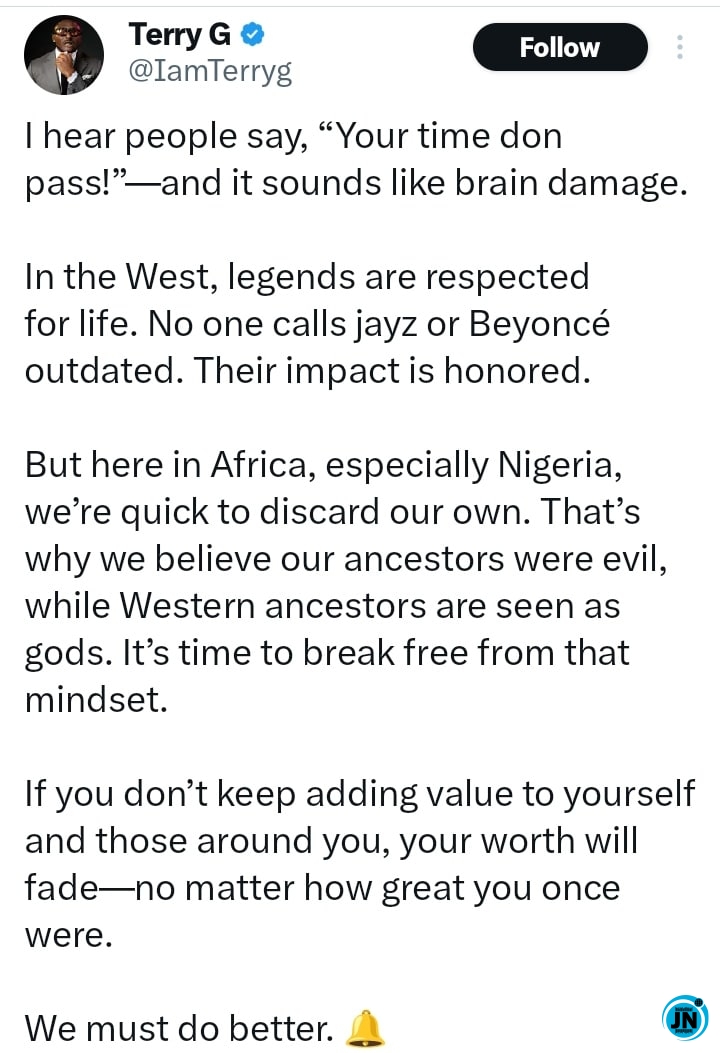Veteran Afrobeats artist, Gabriel Oche Amanyi, popularly known as Terry G, has spoken out against the growing trend of disregarding music legends simply because they are no longer dominating the current music charts. In a passionate statement, Terry G urged Nigerians to show more respect to music pioneers whose contributions laid the foundation for today’s vibrant Afrobeats scene.
The “Akpako Master” expressed his disappointment over how quickly some fans and members of the public are to label veteran artists as “irrelevant” or “outdated” once they are no longer in the limelight. He emphasized that in more developed parts of the world, such as the West, legends are respected, celebrated, and honored for their lasting influence—regardless of whether they still release new music or not.

Drawing comparisons, Terry G noted that figures like Jay-Z and Beyoncé continue to receive admiration and recognition, not just for their current work, but for their enduring legacy and past achievements. He lamented that in Nigeria and much of Africa, the opposite often happens: once an artist’s popularity fades, so does the respect they receive.
He said …
“I hear people say, ‘Your time don pass!’—and it sounds like brain damage.”
“In the West, legends are respected for life. No one calls Jay-Z or Beyoncé outdated. Their impact is honoured.”
“But here in Africa, especially Nigeria, we’re quick to discard our own. That’s why we believe our ancestors were evil, while Western ancestors are seen as gods.”
“It’s time to break free from that mindset. If you don’t keep adding value to yourself and those around you, your worth will fade—no matter how great you once were. We must do better.”
Terry G’s message serves as a wake-up call for fans and industry stakeholders alike to change the narrative around veteran artists and give them the recognition they rightfully deserve. He stressed that preserving and honoring the legacy of pioneers is key to sustaining the cultural value of Afrobeats, not just as a genre, but as a global movement rooted in African heritage.

